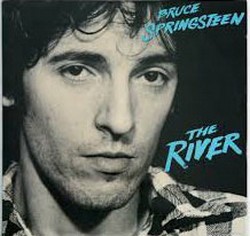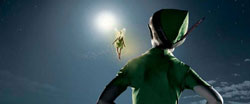Different forms of communication are key in having any healthy relationship, and this includes the dialogue held between Gen Z-ers and Millennials. Oftentimes we see generations connecting via music, art, movie references, and slang, despite the temporal differences.
Through reading, educators and students may have a much smoother relationship that facilitates teaching, bonding, and learning. According to Library Journal, 25 percent of Millennials read classic literature, whereas Gen Z reads romance, horror, and science fiction. The genres read by Gen Z-ers is important because many assume classical novels cannot be driven by plots Gen Z-ers are already attracted to, such as romance, horror, etc.
By combining your interests with a novel, you may come across many classics that have recently been captivating young adults. In my search, I resorted to TikTok, Twitter, Barnes and Noble, and Goodreads to identify the most popular classics among the newer generation.
Othello by William Shakespeare has been taught in countless high school English courses before. It is how I was introduced to my favorite classic, since many of us students objected to the even more well-known Romeo and Juliet. Othello is a tragedy where—after gaining fame for his victories in the Ottoman-Venetian War—Moorish general Othello is victim of the treacherous Iago’s envy-based plot for his downfall.
Iago convinces Othello that his wife Desdemona and his best friend Cassio are in an affair, leading to a gripping final tragedy. Not only does Othello feature one of the first Black main characters in mainstream classical lit; it is also a constant attention-grabber for those who enjoy action and thrills.
Amy Rea from Library Journal also finds that 53 percent of Gen Z-ers read fantasy as their first choice of literature. Hamlet, the Prince of Denmark’s plot is entirely based on fantasy; on the existence of a haunting ghost that torments young Hamlet. Similarly, MacBeth, also by Shakespeare, is another great option for those students who enjoy reading fantasy. MacBeth follows the politically ambitious story of Lord MacBeth and his wife and their psychologically warping road to achieving their success.
In the search for popular classics among Gen-Zers, I found The Picture of Dorian Gray which actually is a favorite across all generations since its 1890 publication. The Picture of Dorian Gray is a Victorian novel written by Oscar Wilde. It follows the debaucherous Dorian Gray and all his immoralities as he uncannily remains young and beautiful; as consequence, however, a painting of himself begins to reflect all his ugliest traits and sins. For those who enjoy mild horror, psychological thrillers and a slower-paced novel, The Picture of Dorian Gray is a wonderful option.
The Art of War is an unconventional extreme compared to the favorites spoken about thus far: the book teaches many lessons that are not based on violence but logical preparation, making educational decisions, and overall strategy. The Art of War is attributed to the classical Chinese military strategist Sun Tzu in about the fifth century BC, and despite its age it still holds a lot of weight for those who read self-help books, have military interests, or simply enjoy action-driven prose.
On another extreme is Pride and Prejudice by Jane Austen, once again making a return in the classical literature spotlight among a newer generation. Pride and Prejudice is a both a satire of Austen’s contemporary times as well as a bona fide romance novel following the story of Mr. Darcy and Elizabeth Bennet.
Worth mentioning is also the short story The Yellow Wallpaper. It appears The Yellow Wallpaper has been recognized among much of Gen Z, since all my peers have read it as well. But for the uninitiated, The Yellow Wallpaper follows the story of an unnamed female character prescribed isolation and bedrest only for “hysteria.” She is then consumed by the yellow wallpaper in her room, and begins to doubt her perception of reality.
For many, it is difficult to take the first step to read when their genre of choice is not yet determined. Knowing what kinds of movies or books you enjoyed in school can lead to readers outside of the classroom. And personally, although there are myriad reasons reading is beneficial, entertainment is on top, at least for me. Classic novels are not exempt from being enjoyable literature; consuming an array of literature that differs from the “usual” can teach valuable lessons that still resonate ages later.



